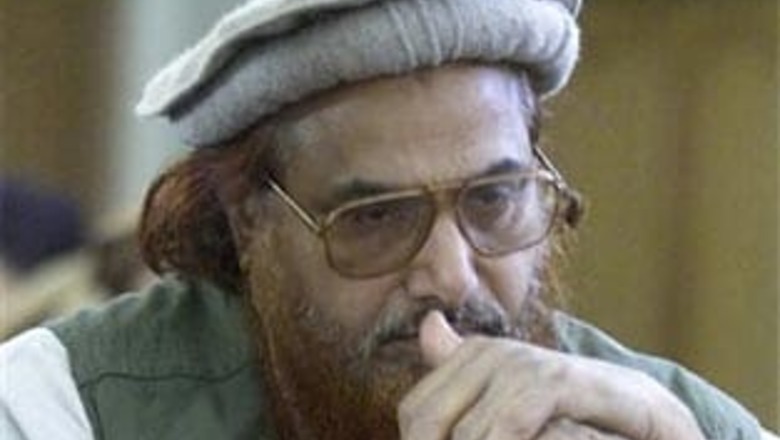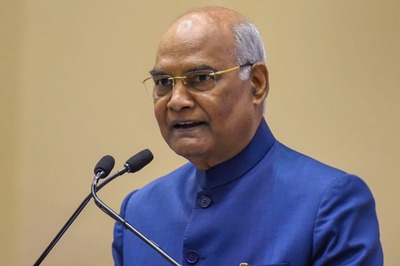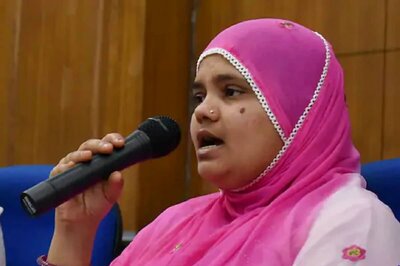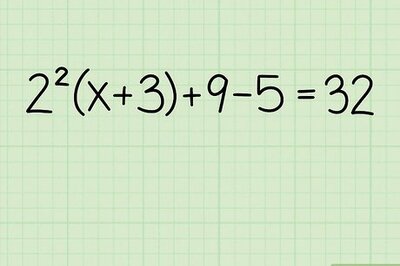
views
Islamabad: Pakistan government on Wednesday asked Supreme Court to adjourn for a week the hearing of petitions against the release of Jamaat-ud Dawa (JuD) chief Hafiz Mohammad Saeed.
Punjab province's move to withdraw its plea on Saeed, a key accused in the Mumbai attacks, was also stalled due to federal intervention.
The request for adjournment was made by Attorney General Latif Khosa, the federal government's senior-most legal official. Khosa told the court that he would not be available to appear before it on Thursday, the scheduled date for the next hearing of the case.
Khosa said an application for adjournment had also been submitted to the apex court's office.
A full bench of the Supreme Court headed by Chief Justice Iftikhar Chaudhry observed that the case would be adjourned Thursday after examining the application for adjournment.
The federal and Punjab governments have filed separate petitions challenging the Lahore High Court's order that released Saeed and his close aide Col (retd) Nazir Ahmed from house arrest on June 2.
The Punjab government's counsel on Tuesday informed the apex court that it wanted to withdraw its petition. However, the move was stalled after Khosa intervened. Punjab's move came ahead of a meeting between Prime Ministers of India and Pakistan on the margins of the NAM summit in Egypt on Thursday during which they are expected to review the progress made by Islamabad to bring to book perpetrators of Mumbai attacks.
Raza Farooq, the Advocate General of Punjab, told the apex court on Tuesday that the provincial government wanted to disassociate itself from the case because sufficient evidence was not available against Saeed and Ahmed.
Farooq also told reporters the federal government was not cooperating with the province in the case.
Farooq told PTI that there was still a possibility that the Punjab government would withdraw its appeal.
A senior officer of the Punjab government, who did not want to be named, said the province had done a re-think at the request of Interior Minister Rehman Malik.
Saeed was placed under house arrest in December after a UN Security Council committee added him and the JuD to a list of people and organisations linked to al-Qaeda or the Taliban.
The federal and Punjab governments, in their petitions, have said the Lahore High Court had not considered the sensitivity of the case, especially in the context of Pakistan's campaign against internal and external terrorism.
The apex court has asked authorities to provide "solid evidence" to back their assertion that Saeed needs to be detained.




















Comments
0 comment